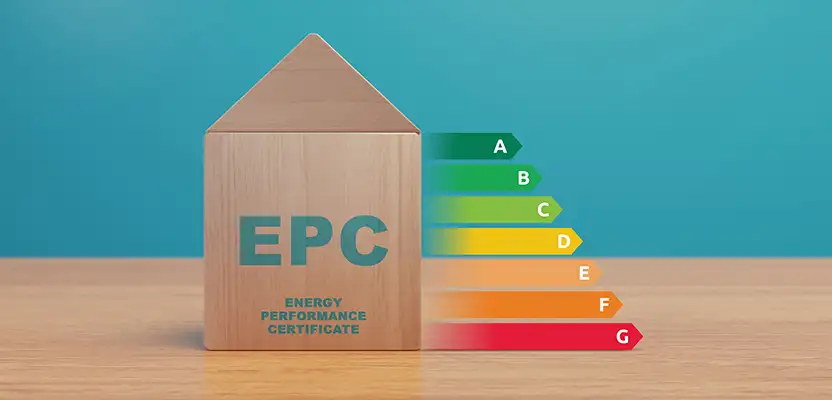
Michael Chen
Student Housing Expert

If you’re a landlord, property investor, or student tenant, you’ve probably seen the letters EPC pop up on listings or tenancy agreements. But what exactly is an EPC rating, why does it matter, and what changes are on the horizon for the way these ratings are given?
In this post, we’ll break down everything you need to know about EPC ratings—especially the upcoming changes that could impact student landlords in Lincoln, Nottingham, and beyond.
EPC stands for Energy Performance Certificate, a mandatory requirement for almost all rental properties in the UK. An EPC rates a property’s energy efficiency on a scale from A (most efficient) to G (least efficient). It considers factors such as:
Insulation
Heating systems
Windows and doors
Lighting
Construction materials
The higher the rating, the more energy-efficient the property—meaning lower energy bills for tenants and a smaller carbon footprint.
At Student Housing, we’re passionate about providing high-quality, all-inclusive student accommodation that’s not only comfortable but also sustainable. EPC ratings are crucial for:
Tenant comfort: Better-rated homes stay warmer in winter and cooler in summer.
Cost savings: Energy-efficient properties reduce utility bills, even when bills are included in rent.
Compliance: Landlords must meet minimum EPC standards to legally rent out a property.
Currently, the Minimum Energy Efficiency Standard (MEES) requires all rental properties to have an EPC rating of at least E. However, that’s may one day change.
The UK Government is committed to improving the energy efficiency of homes as part of its net-zero goals. Here’s what landlords need to know:
✅ Proposed EPC Minimum Rating: The government plans to raise the minimum required EPC rating from E to C for all new tenancies by 2025, and for existing tenancies by 2028. (Cancelled)
✅ More Accurate Assessments: EPC assessments are evolving to incorporate modern technologies like smart meters and improved data on heating systems and insulation. This means that newer assessments may be more thorough—and potentially stricter—than older certificates.
✅ Financial Support: While the exact details are still evolving, the government is considering grants and funding to help landlords meet the new standards.
For landlords, it’s time to plan ahead. Upgrading insulation, heating systems, and even windows can make a big difference in achieving that all-important C rating. At Student Housing, we’re already working with our landlords to future-proof their properties—helping with recommendations, local contractor contacts, and property management services.
For tenants, a higher EPC rating means lower energy usage and a more sustainable home—something we know is important to many students.
At Student Housing, we’re committed to not only meeting but exceeding EPC standards wherever possible. We believe that sustainable homes are better homes—for our tenants, our landlords, and our planet.
If you’re a landlord looking to understand how these changes might affect your property portfolio, or a student looking for energy-efficient accommodation in Lincoln, Nottingham, or Hull, we’re here to help.
Contact us today to learn more about how we’re supporting landlords and tenants through these upcoming EPC changes.
Tags:

Student Housing Expert
Michael has been working with student accommodations for 8 years, focusing on creating comfortable and affordable living spaces for students.